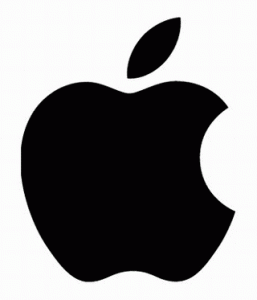
To see how this works, let’s take a look at one of the most hotly debated topics in the market today: Apple Inc. (NASDAQ:AAPL).
In the past decade, fueled by the success of the iPod, iPhone and iPad, Apple Inc. (NASDAQ:AAPL) has grown at a staggering rate. Revenue, earnings, and free cash flow per share have compounded by 38%, 96%, and 72%, respectively. The gross margin has ranged around the mid-30 to low-40%, while the operating margin has increased to around 30% per year for the last 4 years. During the last ten years, the company’s share price has risen by more than 7000%, racing to an all-time high of $705 per share in September of last year.
However, Apple Inc. (NASDAQ:AAPL)’s stock price has fallen by more than 38% ever since. Reasons for the fall are aplenty – the fiscal cliff, deteriorating margins, earnings disappointments, the maps fiasco, product pipeline concerns and increasing competition from Android-based smartphones.
Here is a summary of what people are saying:
Apple bears
1. Apple has lost its touch since Steve Jobs passed away. A company that was known for innovation and creativity has become stagnant.
2. Apple Inc. (NASDAQ:AAPL)’s remarkable success this past decade was due to its unprecedented run of revolutionary products – the iPod, iPhone, and the iPad. For Apple to justify charging a premium for its products, it has to be much better than everybody else –which is going to be very difficult given the short product life cycles and intense competition in the industry.
3. Apple’s fundamentals are deteriorating: the rates of growth of revenue and operating profit have been declining; gross margin has deteriorated sharply in the the last five quarters – 47.4%, 42.8% , 40%, 38.6%, 37.5%; and Apple’s share of the smartphone and tablet market has been declining – in the latest quarter Samsung‘s market share increased to 33% from 29% the previous year compared to Apple which saw its market share decline to 17% from 23% in the previous year.
Apple bulls
1. The demise of Apple has been exaggerated. Apple Inc. (NASDAQ:AAPL) has sold more iPhones and iPads than ever before. In the 6 months ending March 30, iPhone and iPad unit sales registered an increase of 18% and 55%, respectively, compared to the same period last year.
2. There is lot more room for growth: the smartphone market is expected to double in the next 2 years and Apple will benefit significantly even if it does not grow its market share; the tablet market is still in its infancy, as more people shift from PCs to tablets, Apple is well positioned to take advantage of this trend; and lastly, Apple’s penetration in emerging markets such as China is still low, which offers tremendous growth potential.
3. Apple Inc. (NASDAQ:AAPL)’s enjoys the support of a loyal fan base that consistently buys its products; while its ecosystem (e.g., iOS, itunes, and apps store) makes it difficult for customers to switch to competitors.
Reverse engineering Apple’s stock price
At Apples current market price of $433 per share, and with cash per share of around $155, the market is valuing Apple’s operations at $278 per share. Using the free cash flow per share of $46.50 in the past 4 quarters and a 12% discount rate, Apple’s free cash flow needs to decline by 3.8% per year over the next 10 years and with no growth afterwards, to justify this valuation.
If you think this is too pessimistic and Apple can easily beat this growth, then Apple shares are quite undervalued. Otherwise, it is either appropriately priced or overpriced depending on how much you think Apple Inc. (NASDAQ:AAPL)’s business is going to decline.
My verdict
Although it’s only a rough valuation, you can see that the market is significantly underrating Apple’s growth prospects. I think Apple can easily beat the growth implied by its current valuation. On the other hand, I also believe the risks are real – short product life cycles, increasing competition, and a disruptive new technology. Apple could go the way of Microsoft Corporation (NASDAQ:MSFT) or even worse Nokia Corporation (ADR) (NYSE:NOK). Although I think the probability of this happening is low, it is still a legitimate concern.
However, even though I feel Apple Inc. (NASDAQ:AAPL) is undervalued, I have to pass. There’s a reason why Warren Buffett stays clear of technology stocks: The future is too uncertain and the competition is fierce; who knows what the future holds.
The article The Reports of Apple’s Demise Have Been Greatly Exaggerated originally appeared on Fool.com and is written by Zarr Pacificador.
Zarr Pacificador has no position in any stocks mentioned. The Motley Fool recommends Apple. The Motley Fool owns shares of Apple. Zarr is a member of The Motley Fool Blog Network — entries represent the personal opinion of the blogger and are not formally edited.
Copyright © 1995 – 2013 The Motley Fool, LLC. All rights reserved. The Motley Fool has a disclosure policy.


